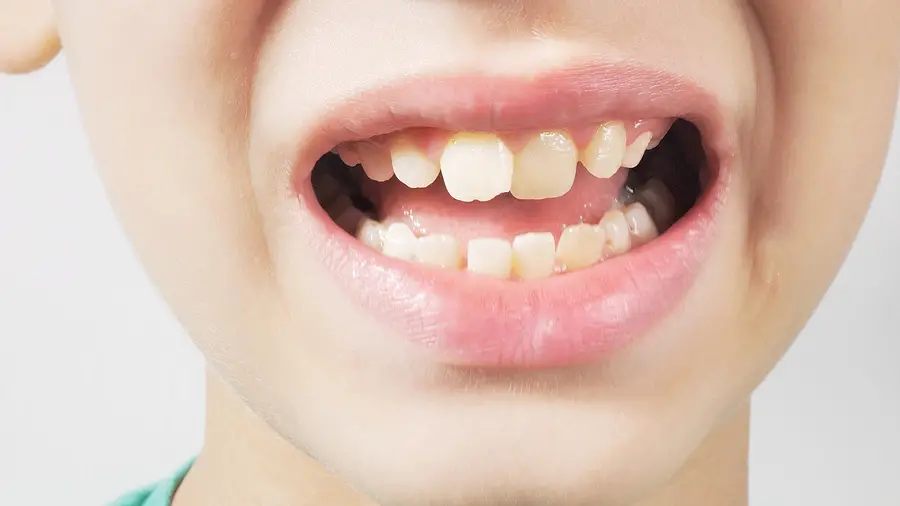Our Articles

When Do I Need Jaw Surgery?
Pain is a sensation we desperately try to avoid, but sometimes our bodies do us no favors and make everyday activities u...
Read More
Changes You'll Notice After Your Dental Implant Surgery
When you are terrified or anxious before dental surgery, results become the force that drives you to sit in your dentist...
Read More
How to Get Your Children Ready for a Tooth Extraction
To the inventive mind of a child, tooth extractions in 76210 sound like spine-chilling monsters that want to make their ...
Read More
Understand the Benefits of Bone Grafting for Dental Implants
Various factors are necessary for good oral health, including frequent brushing and flossing, a healthy diet, and positi...
Read More
Getting Ready: Five Things You Should Do Before Dental Implant Surgery
Dental implants in 76210 are a life-saver for people with unhealthy or insecurity-inducing smiles. They are a part of th...
Read More
When Is Tooth Removal Necessary?
Whenever possible, we try to preserve as much of our patients’ natural tooth material as possible. That said, there are ...
Read More
7 Things You Need to Know About Wisdom Teeth
Wisdom teeth used to serve a very important purpose; however, in current day, they can cause issues if you don't have e...
Read More
How Do You Deal With Anxiety Before a Tooth Extraction
Tooth extraction in Denton is often a routine task for dentists. However, it is a cause of concern and anxiety for some ...
Read More
Is Your Wisdom Tooth a Risk for Oral Disease?
Wisdom teeth in Plano can grow when there’s almost no room inside a person’s mouth. More often than not, the third molar...
Read More
Diseases That Make Dental Implants Necessary
Dental implants in Denton are designed to replace lost teeth. You won’t need these implants when you have complete and h...
Read More
Facts to Remember About General Anesthesia
Your dentist may advise that you’ll need general anesthesia in Plano for your scheduled surgery. For a calm mind leading...
Read More
What Health Issues Come From Impacted Wisdom Teeth?
Impacted wisdom teeth at 76210, Texas, bring severe oral health issues that a dentist or oral surgeon must check. One of...
Read More
Possible Complications of Wisdom Tooth Removal
Wisdom teeth removal in 76210 is not without its side effects and complications. Fortunately, most of these issues are m...
Read More
The Effects of Oral Trauma and Treatment Options
While we all face accidents in our lifetime, some of them may have more prolonged effects than others. Sometimes we don'...
Read More
Dental Procedures That Require the Expertise of an Oral Surgeon
Dental procedures can range from the relatively minor—a cleaning, a filling, or a root canal—to the very serious—a tooth...
Read More
Mouth Diseases That Oral Pathology Can Diagnose
Oral pathology is a branch of medicine that deals with the mouth and surrounding tissues. The mouth is a complex, multi-...
Read More
Tooth Removal vs. Wisdom Tooth Extraction: What's the Difference?
Tooth removal in 76210 and wisdom tooth extractions are two common terms used to describe different procedures for pulli...
Read More
Different Types of Dental Surgery
Dental surgery is a medical procedure that involves the gum and teeth. The process can refer to different medical method...
Read More
Caring for Your Dental Implants
Dental implants in Decatur are artificial replacement teeth anchored by a screw, rod, or bracket. They offer a long-last...
Read More
What Do Patients Get From a Dental Implant?
As you grow older, you also develop your permanent teeth. When these teeth are damaged or removed, they’re gone forever....
Read More
Reasons Why You Should Look for a Certified Oral Surgeon
An oral surgeon in 76210 is a medical professional specializing in handling problems with the oral cavity. They also tak...
Read More
Understanding the Process of a Bone Grafting Procedure
Bone grafting is a common procedure used in dentistry to repair or replace damaged tooth structures. Bone grafting in 76...
Read More
Special Precautions When Taking General Anesthetics for a Dental Procedure
General anesthesia in Plano is a type of anesthesia that puts you to sleep and prevents you from feeling pain. It's comm...
Read More
What are the Most Common Dental Procedures Offered by a General Dentist?
General dentists are the ones you typically see first when you visit a dental office. They specialize in treating all as...
Read More
What Can Happen When Wisdom Teeth Become Impacted?
If you're like most adults, you've got a set of wisdom teeth in your mouth that you wish you didn't have. They're the la...
Read More
Are Dental Surgeries Safe?
Dental surgery in 75075 is often performed as an outpatient treatment, and patients can return to regular activities wit...
Read More
Are Oral Surgeries Safe?
Sometimes, when we have severe dental problems, it is necessary to undergo surgeries to fix the issues. If you're lookin...
Read More
What Type of Anesthesia Is Used for Wisdom Tooth Extractions?
When patients begin to suffer discomfort from arriving wisdom teeth, they should consult a dentist about the potential o...
Read More
Different Types of Tooth Extractions
Problems with your teeth often show that there is a lack of oral care, which can lead to needing a tooth extraction. How...
Read More
Dental Implant Alternatives
A healthy set of teeth not only aids in general health but also allows you to flaunt a beautiful grin. Chewing and speak...
Read More
What to Expect from Jaw Surgery
Jaw surgery or orthognathic surgery is a medical process of realignment of jaw irregularities. If you need to get jaw su...
Read More
How to Deal with Impacted Wisdom Teeth
They say having wisdom teeth is a sign of you being wise, but the wisdom tooth is something we get from our predecessors...
Read More
Bad Habits of People Who Have Dental Implants
Dental implants are the preferred tooth replacement solution for both patients and dentists. Continue reading to find ou...
Read More
Can Dental Implants Fix Gum Recession?
Gums are important. This is because the gums help hold the teeth in place and house the roots. If you happen to need adv...
Read More
Are Wisdom Teeth Pains Considered an Emergency?
Wisdom teeth are the last set of teeth in your mouth. They are the last to erupt, usually in your late teens or early tw...
Read More
How Often Should You Visit the Dentist?
Dentists recommend visiting them for a consultation and cleaning every six months. An oral consultation in Gainesville i...
Read More
Wisdom Tooth Extractions: What To Expect
Surgically removing one or more wisdom teeth is known as wisdom tooth extraction and refers to both the top and lower wi...
Read More
What Are the Common Causes Of Oral Trauma?
Have you ever experienced getting injured while playing sports or were in a serious accident? Oral trauma is one of the ...
Read More
A Guide to Oral Pathology: Common Oral Diseases
Although you might not consider oral care as important, it becomes an entirely different situation when you're sitting o...
Read More
The Importance of Replacing Missing Teeth
If you've lost one or more teeth, you might be wondering if replacing them is truly necessary. They aren't stopping you ...
Read More
Are Your Wisdom Teeth a Friend or a Foe?
Despite their name, impacted wisdom teeth in 76210 do not make people wiser. It can be quite painful when these late-sta...
Read More
What Makes Summer a Good Time for Wisdom Teeth Extraction?
Summertime. Bathing suits, sunglasses, outdoor activities, and wisdom teeth extractions. Wait… what!? Yes, it's actually...
Read More
Am I a Suitable Candidate for a Full Mouth Dental Implant?
You may be qualified for a complete mouth implant procedure if you are losing or have lost nearly half of your teeth, or...
Read More
Everything You Need to Know About Tooth Extractions
Despite your best efforts in maintaining good oral health and dental hygiene, there may come a time in your life when yo...
Read More
Are Dental Implants the Right Route to Replace Your Teeth?
Dental Implants are by far one of the greatest innovations in the field of dentistry. They have withstood the test of ti...
Read More
Wisdom Teeth Extraction: What You Need to Know
Wisdom tooth extraction is a very common dental procedure, but it can also be very. Are you looking for a reliable denta...
Read More
What is Jaw Surgery Like?
Do you have problems with chewing or biting on food, have jaw closure concerns, or a facial imbalance? If you experience...
Read More
Tooth Removal Problems and How to Address Them
Tooth extraction can often instill fear in patients, especially in kids. However, it is important to avoid infection and...
Read More
FAQs to Know Before Undergoing Dental Surgery
Consulting with your oral surgeon in 76210 and asking questions that bother you about dental surgery can make you feel a...
Read More
Dos and Don'ts Before Dental Surgery
If you’re having dental surgery in 75075, there are a few things you need to prioritize and take into consideration. Be ...
Read More
What Happens After your Tooth is Extracted?
Tooth removals are required for a number of reasons. Generally, this treatment is performed to extract wisdom teeth, whe...
Read More
Dental Bone Grafts: What You Should Know
Even if you don't know much about dental implants, you've probably heard the term. Bone grafting in 76210, on the other ...
Read More
General Anesthesia for Dental Care
General anesthesia in Plano eliminates any possible anxiety and pain during your treatment. It gives your dentist more t...
Read More
Is Wisdom Tooth Extraction Considered Surgery?
If you don’t have enough room in your mouth for a third set of molars to fully erupt, a few problems could occur. Before...
Read More
Why Are Dental Implants So Popular?
Dental implants in Denton are the closest thing in dentistry when it comes to getting natural-looking teeth. A natural t...
Read More
Oral Consultation Expectations
The first step toward getting a minor or major surgery is scheduling an oral consultation in Gainesville. If you think y...
Read More
Post Op Instructions After Dental Implant Surgery
Like all other surgeries, a clear post-op care routine is necessary to avoid any mishaps during the healing process. The...
Read MoreOur Locations
3713 W 15th St, #403, Plano, TX 75075
Phone: (972) 596-9242
Email: dduran@oms360.com
Fax: (972) 612-0787
- MON - THU8:00 am - 4:30 pm
- FRI8:00 am - 3:00 pm
- SAT - SUNClosed
2711 Shoreline Dr, #131, Denton, TX 76210
Phone: (940) 387-9015
Email: dduran@oms360.com
Fax: (940) 898-1649
- MON - THU8:00 am - 4:00 pm
- FRI8:00 am - 2:00 pm
- SAT - SUNClosed
- MON - WEDClosed
- THU8:00 am - 4:00 pm
- FRI - SUNClosed
- MON - MONClosed
- TUE - TUE9:00 am - 4:00 pm
- WED - SUNClosed



